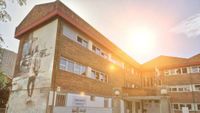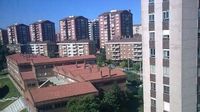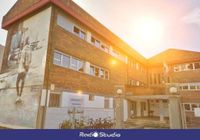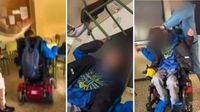A disturbing case of bullying has emerged from the IES Leonardo Torres Quevedo in Santander, where a 16-year-old student with cerebral palsy has been subjected to harassment by classmates. The incidents, which were recorded by the aggressors themselves, include physical assaults and verbal insults that have raised significant alarm among parents and educational authorities alike.
The situation came to light on March 26, 2025, when the mother of the victim appeared on the national television program 'El programa de Ana Rosa', expressing her anguish over the treatment her son has endured. Despite filing a complaint with the National Police, she lamented that her son continues to share a classroom with the students who bullied him. This revelation has sparked outrage and calls for immediate action.
The bullying protocol has been activated by the Consejería de Educación del Gobierno de Cantabria, which has also opened an ordinary disciplinary procedure against those responsible for the aggression. This protocol prioritizes the care of victims and aims to ensure a safe educational environment. The director of the school initiated this protocol after confirming the events through discussions with the victim's mother and reviewing the disturbing videos.
According to reports, the videos show the aggressors pushing and hitting the victim, who is confined to a wheelchair due to his condition. The harassment has not only been physical but also psychological, as the attackers verbally insulted him while he was unable to defend himself. In light of these events, the Consejería has issued precautionary measures, including a five-day expulsion of the involved students, which is the maximum penalty allowed by law.
In a statement, Sergio Silva, the Consejero de Educación, Formación Profesional y Universidades, condemned the actions of the students involved, calling them "inadmissible." He expressed deep sadness over the incident, stating, "I want to show all the anger for what has happened and my sadness that minors can be involved in events of this type." Silva has reached out to the victim's family, offering them his full support and emphasizing the need for a swift resolution to the issue.
Despite the disciplinary measures taken, the initiation of a criminal procedure by the victim's family has halted the school’s disciplinary process. This has led to concerns regarding the effectiveness of the school's response. The family has been in direct contact with the school, and the Consejería has assured them that it will do everything possible to protect the student and ensure his well-being.
The Asociación Tolerancia 0 al Bullying has also expressed concern over the incident, indicating that they will provide psychological and legal support to the family. Lourdes Verdeja, president of the association, stated that this case is "very serious" and highlighted that similar incidents are occurring in other Cantabrian schools, where students are still in contact with their aggressors.
In response to the situation, the PSOE de Cantabria has criticized the education authorities for their handling of the case. They argue that failing to take decisive action in known cases of bullying constitutes negligence. Verónica Samperio, the secretary of education for the PSOE, emphasized that the victim should not have to share a classroom with the aggressors, asserting, "The response of the educational center is insufficient. Expelling the aggressors for three days is not enough, as they will return to the same environment as the victim."
Samperio highlighted the added vulnerability of the victim, who has a disability, stating that the current measures do not adequately protect his rights. She called on the education authorities to take immediate and effective actions to ensure the safety and well-being of all students.
Preventive measures now in place at the IES Leonardo Torres Quevedo include accompanying the victim throughout the school day to ensure his safety and supervising the classroom environment to prevent contact with the aggressors. The school has also committed to providing emotional support and individualized attention to help the victim rebuild his self-esteem and improve his interpersonal relationships.
This case has sparked a broader discussion about bullying in schools, particularly involving students with disabilities. Reports suggest that between 10% and 15% of students experience violence from their peers, highlighting the urgent need for schools to implement effective anti-bullying policies and create a safe environment for all students.
As the investigation continues, the focus remains on ensuring the safety of the victim and providing him with the necessary support to recover from this traumatic experience. The community is rallying around the family, demanding accountability and systemic changes to prevent such incidents from recurring in the future.
In the face of such distressing events, it is crucial for educational institutions to not only react promptly but also to foster a culture of respect and inclusion, ensuring that no student has to endure bullying or harassment.









